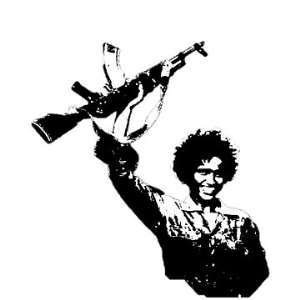 Hawo Taako
Hawo TaakoIn the heart of Ethiopia’s Somali Region, from the resilient communities near Jigjiga, a powerful figure emerged whose legacy still inspires people across the Horn of Africa. Her name was Xaawo Cismaan, but she is remembered by history as Hawo Tako—a fearless woman who became a symbol of resistance, not only for Somalis but for all Africans who stood against colonialism and oppression.
Hawo Tako was born in the early 20th century in Kebribeyah, a small town in Somali Region of eastern Ethiopia. Her roots were deeply connected to her people’s struggles, traditions, and dreams of freedom—connections that would later fuel her fight against Italian fascist forces, who, like many other colonial powers, sought to control and divide Africa.
But Hawo Tako was not just a protester—she was a leader. She joined the Somali Youth League (SYL), the first political party in Somalia to push for independence. Even though she was far from her hometown, in the bustling streets of Mogadishu, she stood on the front lines of the anti-colonial struggle. On October 14, 1948, while leading a protest against Italian rule, Hawo Tako was tragically killed. Her death marked her as a national martyr and a hero of Africa’s broader fight for freedom.
Her sacrifice was not in vain. It inspired others to rise up—not just in Somalia but across the continent. At a time when countries like Algeria, Ghana, Kenya, and Angola were fighting for independence, Hawo Tako’s story became part of a larger African movement that would eventually reshape the world.
The Somali Region, where Hawo Tako was born, has long been a land of resistance. It gave rise to legendary figures like Sayyid Mohamed Abdullah Hassan, who led an armed struggle against British colonialism, along with countless unnamed heroes who resisted foreign rule in their own ways. It’s a region defined by dignity, courage, and the refusal to be silenced.
Yet Hawo Tako’s legacy carries a unique weight. In a time when resistance stories were dominated by men, she broke barriers. She proved that women were not just witnesses to history—they were makers of it. Her courage challenged the idea that women should stay behind the scenes. She showed that women could, and often did, lead the charge—against poverty, injustice, and imperialism.
Today, Hawo Tako represents much more than a historic figure. She stands as a symbol of courage, sacrifice, and the unshakable belief in justice. For young Somalis—especially girls—her story is not just inspiring; it’s empowering. It reminds them that their voice matters, that their courage can shape nations.
Hawo Osman, known to history as Hawo Tako, is more than a name etched into Somali and African history—she is a spirit of resistance, alive in the hearts of those who continue to fight for justice and freedom. From the dusty roads of Kebribeyah to the resistance marches in Mogadishu, her voice still echoes—strong, proud, and full of promise.


